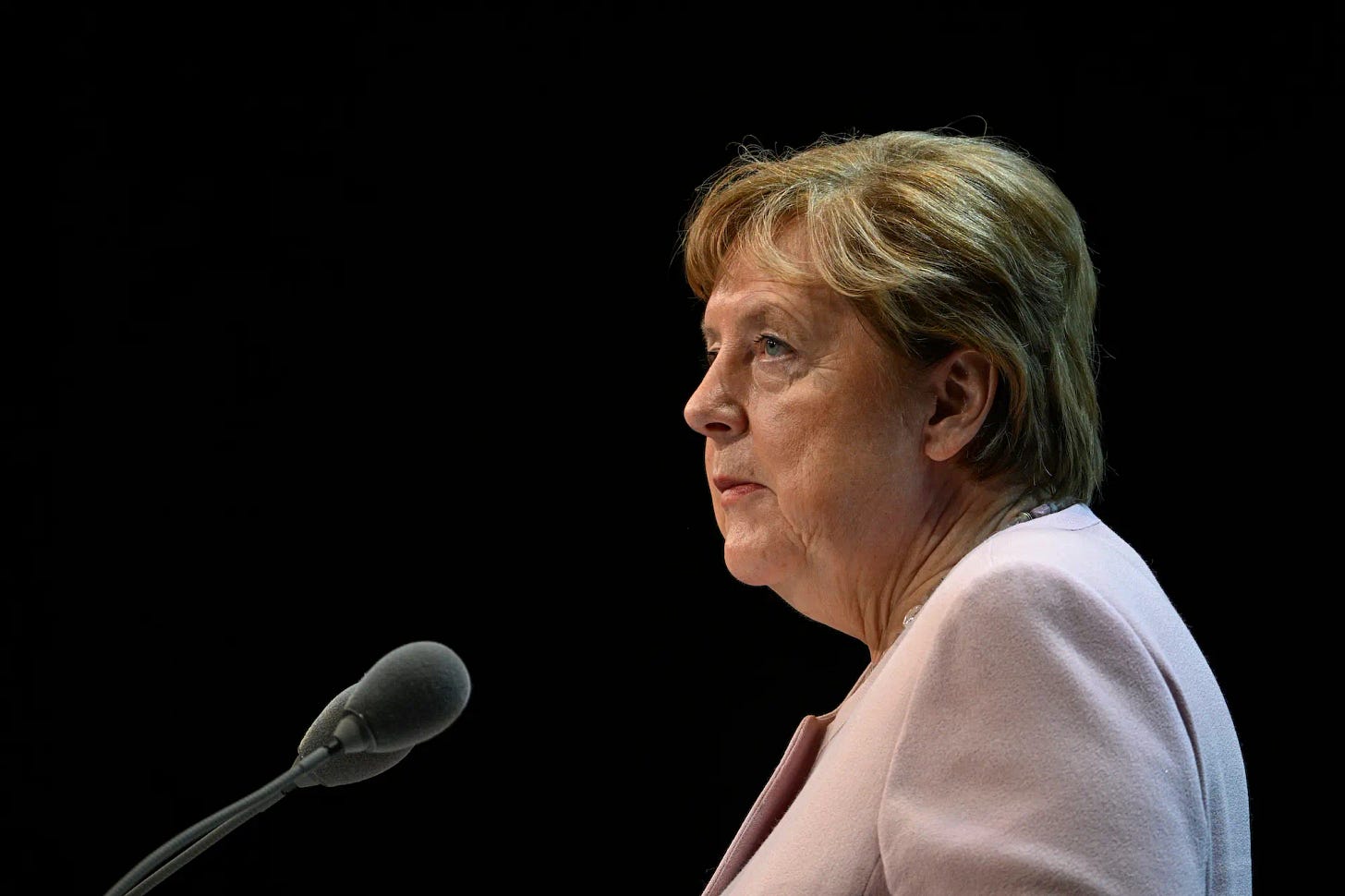
It was a shallow affair. Reputed to have exceptionally poor hairdo, the figure who became one of Europe’s, and indeed one of the globe’s most lasting and influential politicians, inspired memes aplenty for what she sported on her bonce.
The teases, the parodying, the satire, began to bite. Stylists were sought in an attempt to do away with the soup bowl severity of her hair, all part of the rebrand in running against Chancellor Gerhard Schröder in 2005. There was Udo Walz, whose clients included Chancellor Schröder himself, and such celebrity terrorists such as Ulrike Meinhof.
Former world hairdressing champion, Martina Acht also offered her snipping and touch-up services, much to the consternation of an envious Walz, who insisted on being the first one to have “started slowly changing her style.” The change had evidently been so slow as to enable competitors to swoop in. “Just before George Bush visited Germany in February [2005], Mrs Merkel came to me for advice,” stated Acht in September that same year. “I wanted her to look her best for ‘Georgie Boy’, so I did her hair, and gave her a bit of encouragement in the looks department.”
Being out of the job of German Chancellor for two years, Merkel’s appetite for hairstyling and makeup has not abated. The bills for quite literally keeping up appearances continue to amount. A freedom of information request submitted by the Tagesspiegel has found that the Chancellery continues to pay Merkel’s hair and makeup costs regarding public and private engagements. The amount since 2021 has come to 57,000 euros.
Merkel also seems to have parted ways with a makeup artist she had retained for some years, preferring the services of a self-employed hair and makeup artist. And just to add sauce to the mix, not to mention cost, the individual is also a fashion designer.
According to the Chancellery’s response to the paper, “The assumption of costs is linked to the performance of continuing official duties – regardless of whether they are public or non-public.”
That is not an assumption worn lightly in the office. When Merkel billed the government for both her stylist and personal adviser during a visit to the Netherlands last year, some employees in the Chancellery grumbled. Concern was also expressed about accommodation costs for Merkel’s cosmetics assistant for a trip to Geneva.
For members of the current government, the costs for keeping up appearances has been impressive. A parliamentary investigation earlier this year found that 1.5 million euros had been spent on payments to photographers, hairdressers and makeup artists for the first full year of the Scholz administration. This constituted, roughly speaking, an 80% increase from 2021. In all of this, the true star in the roll call of makeup expenses turned out to be Foreign Minister Annalena Baerbock. In 2022, 137,000 euros was spent on a makeup artist that keeps the minister company for her appointments in Germany and overseas.
The current chancellor, Olaf Scholz, is also proving stellar in his own right: 21,808 euros was spent on hair and makeup in 2023, and 38,910 euros the previous year. These totals would be questionable at the best of times, but Scholz’s case is even odder. How do you justify generous remunerations to hairstylists for someone with little to no hair to work with? Is the pate particularly delicate, requiring tender care? German taxpayers must be pondering the mysteries.
The issue with generous hairstyling and photography costs seems to be endemic, spreading through the country to other offices and states. The office of Bavaria’s head of state, Markus Söder, parted with 180,000 euros on freelance photographers in 2022, just to add to the 36,000 euros annually paid to a permanent photographer.
The post-career billings of politicians reluctant to leave the treasury unmolested has been a very pungent and contentious issue. How far should such public service be rewarded, if at all? Should it extend to some perennial monetary defraying of expenses well beyond the life, let alone usefulness, of that service? In Australia, the treasured Life Gold Pass, introduced in 1918, used to give former members of parliament extensive travel benefits within the country without fear of private disbursement for return trips. Initially, there were no limits. Then the trips were capped. Eventually, the measures were amended in 2017 to only cover former Prime Ministers. Discussion about makeup artists in tow, however, did not occur.
President Reiner Holznagel, President of The Taxpayers’ Association, argues that using the public purse to cover an ex-politician’s expenses such as makeup artists and hairstylists is best avoided or “reduced to the bare minimum.” When in doubt, these should be paid from private sources. It is a sentiment most understandable but, short of any hard policy reform, likely to be rebuffed. The definition of politics by the witty poet and US Civil War veteran Ambrose Bierce comes to mind: “The conduct of public affairs for private advantage.”



